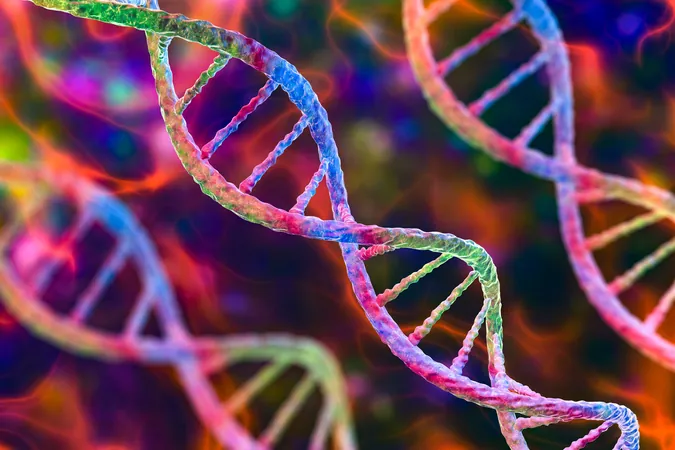
Revolutionary AI Models Reveal Surprising Connections Between Aging and IPF
2025-08-26
Author: Wei
Groundbreaking AI Research Unveils IPF Insights
In a dramatic leap for medical science, two pioneering artificial intelligence (AI)-based models are uncovering the intricate links between aging and idiopathic pulmonary fibrosis (IPF), a devastating lung disease primarily affecting those over 60. This significant study, recently published in the journal *Aging*, challenges the notion that IPF is simply a byproduct of the natural aging process, suggesting instead it represents a complex dysregulation of how we age.
Understanding IPF and Its Impacts
IPF leads to declining lung function and can ultimately result in respiratory failure, prompting urgent research to explore aging-related mechanisms that could shed light on its pathogenesis, states Dr. Alex Zhavoronkov, a key contributor and CEO of Insilico Medicine, a biotech firm harnessing AI for groundbreaking drug discovery.
Current Treatments and Their Limitations
The existing treatments for IPF are limited, mostly aiming to slow down disease progression rather than addressing its root causes. Lung transplantation remains the only effective treatment capable of significantly enhancing patient prognosis.
Innovative AI Models Take Center Stage
To pave the way for better patient outcomes, researchers developed two advanced AI-driven models. The first, a 'fibrosis-aware aging clock,' leverages proteomics data from the UK Biobank to determine a patient’s biological age. The second, dubbed IPF-Precious3GPT, is an omics transformer used to generate detailed gene expression profiles.
These models produced two distinct profiles; the first illustrated the classical response to IPF, while the second demonstrated the aging process within lung tissues from the 30s to the 70s, highlighting the critical roles of specific genes in these biological pathways.
Astounding Accuracy in Predicting Biological Age
The aging clock showed an impressive predictive accuracy of R² = 0.84, with a mean absolute error of just 2.68 years. When the model was tested among a cohort of patients with varying severities of COVID-19, those with severe cases—at greater risk for developing lung fibrosis—exhibited an increased biological age of 2.77 years.
Unique Pathways Linking Aging and IPF
Analysis by the IPF-Precious3GPT model unveiled akin gene expression patterns in aging lungs and fibrotic disease, but with notable distinctions. These findings confirm that IPF is not merely accelerated aging, but a unique pathological syndrome. Researchers identified four critical pathways influencing both IPF and the aging process: TGF-β signaling, oxidative stress, inflammation, and extracellular matrix remodeling.
Looking Ahead: Expanding Research Horizons
With plans to validate these AI models in dedicated IPF cohorts, the research team is eager to expand their approach to other fibrotic and age-related diseases like liver cirrhosis and kidney fibrosis—where similar aging mechanisms may play a role.
Exciting Potential for Future Applications
This innovative research promises to enhance drug discovery efforts, identify biomarkers, and refine personalized treatment strategies. However, the team also acknowledges the need for further validation, emphasizing that their findings are based on transcriptomic and proteomic data, which may not fully capture the epigenetic factors at play in the relationship between IPF and aging.



 Brasil (PT)
Brasil (PT)
 Canada (EN)
Canada (EN)
 Chile (ES)
Chile (ES)
 Česko (CS)
Česko (CS)
 대한민국 (KO)
대한민국 (KO)
 España (ES)
España (ES)
 France (FR)
France (FR)
 Hong Kong (EN)
Hong Kong (EN)
 Italia (IT)
Italia (IT)
 日本 (JA)
日本 (JA)
 Magyarország (HU)
Magyarország (HU)
 Norge (NO)
Norge (NO)
 Polska (PL)
Polska (PL)
 Schweiz (DE)
Schweiz (DE)
 Singapore (EN)
Singapore (EN)
 Sverige (SV)
Sverige (SV)
 Suomi (FI)
Suomi (FI)
 Türkiye (TR)
Türkiye (TR)
 الإمارات العربية المتحدة (AR)
الإمارات العربية المتحدة (AR)